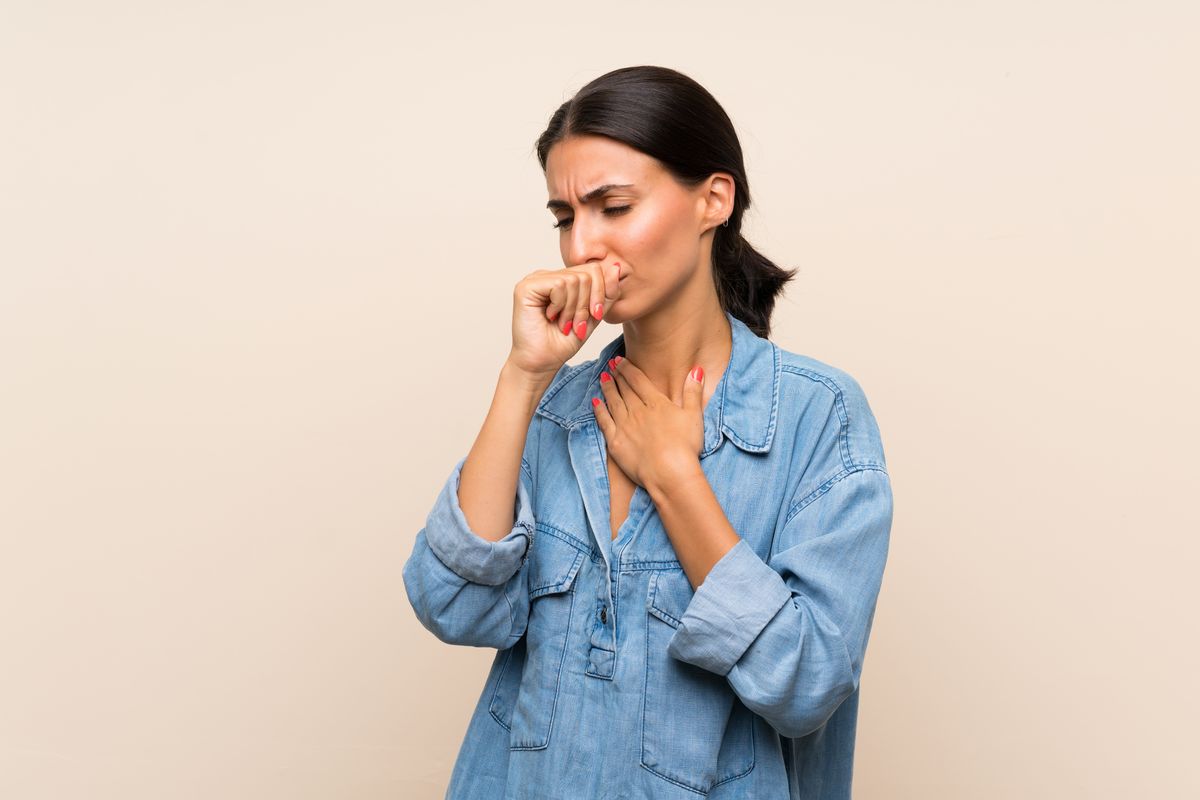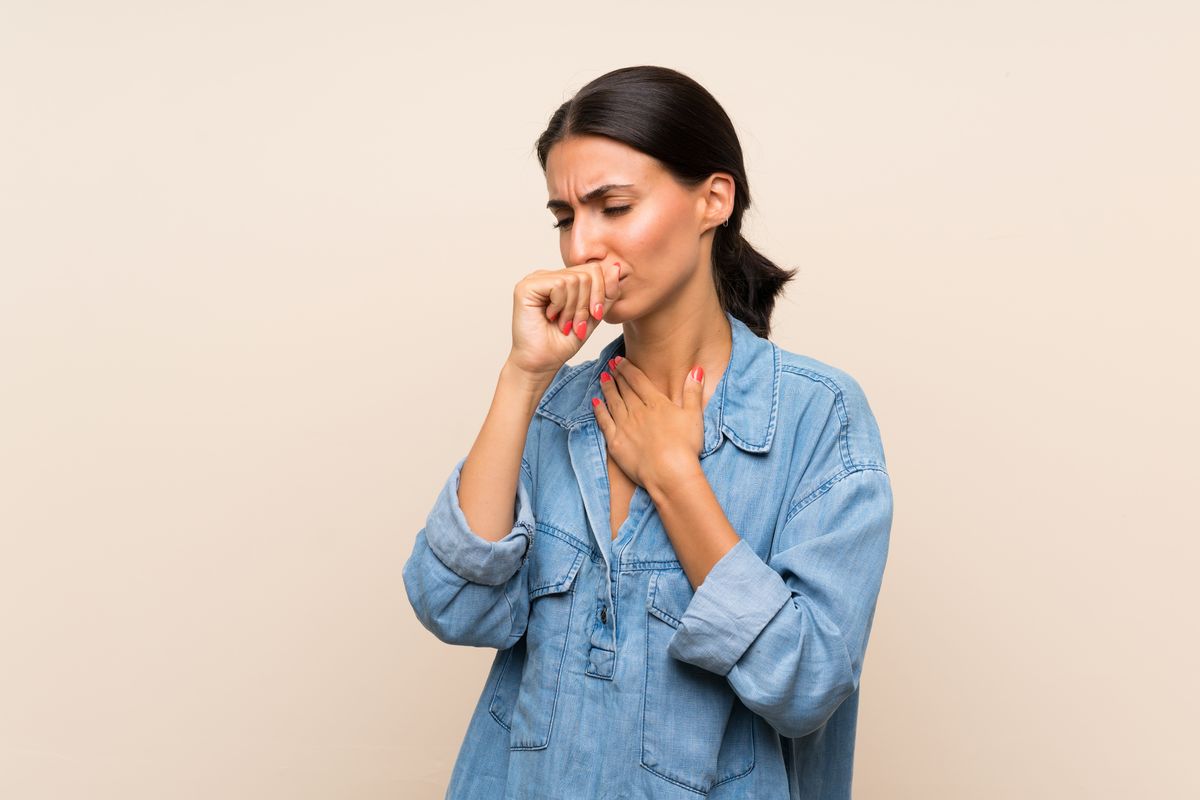Health
Chesty cough: when to worry?


Coughing is often linked to cold-related illnesses, such as common colds or flu, but it actually represents an indispensable tool that our body uses to keep its airways healthy.
When the levels of dangerous secretions and particles increase, chesty cough comes into play . Below, we will explore the potential causes and possible remedies, both pharmacological and natural.
The function of mucus in the body
Normally, the body already produces a small quantity of mucus useful for optimal maintenance of the airways.
It is in the mucous glands that mucus is produced, which has the task of covering the ciliated epithelium. The cilia present on this epithelium have a fundamental role during the mucociliary cleansing operation, during which the mucus is pushed towards the pharynx where it will subsequently be swallowed.
In this way, the body gets rid of excess mucus, maintaining only a very thin layer which will have the task of trapping and removing the impure particles inhaled.
When a wet cough occurs
Chesty cough occurs when excess mucus in the airways cannot be effectively eliminated by the normal mucociliary cleansing mechanism.
This happens especially in cases of disorders such as acute bronchitis . In these conditions, the body reacts by contracting the airways, with the aim of expelling accumulated mucus.
When mucociliary cleansing is compromised , both due to the excessive quantity and the altered physical properties of the mucus, coughing comes into play as an indispensable mechanism to prevent obstructions to the airways.
When to worry about a wet cough
As we have seen, coughing is our body's way of keeping our airways clean . However, when the cough becomes persistent, it could represent the first warning sign of the onset of a disease affecting the respiratory system.
A wet cough that lasts for a long time can interfere with normal breathing, sleep and carrying out everyday activities, causing further problems such as muscle pain, fatigue and insomnia.
A cough that lasts excessively over time can represent the symptom of some chronic non-malignant diseases , but can also indicate diseases such as chronic obstructive pulmonary disease (COPD) or respiratory tract cancer.
Furthermore, coughing is one of the main symptoms of asthma , especially if you experience pain and shortness of breath at the same time.
In conclusion, it can be stated that all problems affecting the respiratory system have a cough as their first and most visible symptom and not always a fever.
Therefore, it is essential to consult a doctor to identify, for example, the symptoms of bronchitis even in the absence of fever .
Chesty cough: the most common causes
As mentioned, wet cough is often caused by a high production of mucus in the respiratory tract , resulting from various biochemical mechanisms.
Among children , the most common causes of excessive mucus production are viral upper respiratory infections .
In some cases, bacteria such as Streptococcus pneumoniae, Mycoplasma pneumoniae and Chlamydia pneumoniae may also be involved, especially when accumulated mucus creates an environment conducive to bacterial proliferation.
In adults , in addition to infections (including atypical ones such as tuberculosis), the causes of wet cough can include rhinosinusitis or bronchitis, lung abscesses and gastroesophageal reflux.
Risk elements such as smoking, neuromuscular disorders and inhalation of foreign bodies can aggravate these conditions.
Oily cough: remedies
The main remedies recommended for chesty cough include both pharmacological and natural options.
Pharmacological remedies:
- mucolytics: these drugs decrease the viscosity of mucus, making it easier to expel. Among the most common active ingredients we find acetylcysteine, erdosteine, sobrerol, ambroxol and bromhexine;
- expectorants: they promote the fluidification of secretions, aiding expectoration. Typical active ingredients include guaifenesin, ammonium chloride, eucalyptus, mustard, ipecacuana, and scylla, although they can cause side effects including skin irritation and dizziness;
- antibiotics: used when the phlegm has a color that tends towards yellow and green, these drugs must be prescribed by the doctor. The most common antibiotics include amoxicillin, clarithromycin, and azithromycin. It is advisable to combine probiotics to re-establish the intestinal bacterial flora during antibiotic therapy.
Natural remedies:
- fumigations: the inhalation of vapors from hot water facilitates the liquefaction of mucus and vasodilation. The addition of bicarbonate, eucalyptus (for its properties ) and essential oils to the water can improve the effectiveness of the treatment.
- nasal washes: especially suitable for children, these washes with sterile physiological solution remove mucus and clean the airways. The solutions can be hypotonic (0.9% salts) or hypertonic (about 3% salts) for a decongestant effect.
These remedies, which you can learn more about here , combined with proper hydration and a humid environment, can relieve the symptoms of wet cough , improving breathing and reducing discomfort.
SOURCES
www.saperesalute.it/tosse-grassa- Quando-non-se-ne-vuole-andare-via/
www.materdomini.it/enciclopedia/sintomi-e-disturbi/tosse/
www.gvmnet.it/press-news/news-dalle-strutture/tosse-grassa-e-bambini-i-consigli-dello-pneumologo
Riproduzione riservata © - WT











